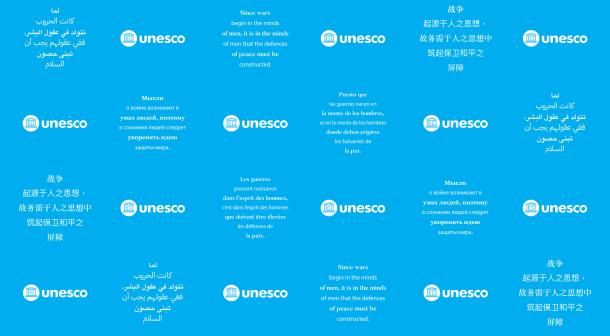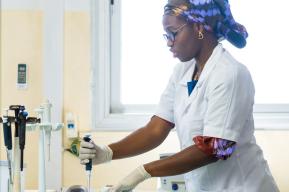News
Aminata Diaw-Cissé: “We cannot end gender-related violence without understanding the social construction which is the backdrop.”

On the eve of the International Day for the Elimination of Violence against Women (25 November), Aminata Diaw-Cissé, Senior Programme Officer within the Council for the Development of Social Science Research in Africa (CODESRIA), revisits the objectives and preliminary results of a project on the women’s movement and gender-related violence. This project has been carried out since 2011 in Gambia, Guinea-Bissau and Senegal by UNESCO, UN Women, CODESRIA and the UNESCO National Commissions of the countries involved.
How can this project – carried out by UNESCO’s Dakar Office, with the support of UN Women and CODESRIA – help improve the daily lives of women in the countries where it has been conducted?
The studies initiated by these three institutions dealt, on the one hand, with the women’s movement and, on the other hand, with gender-related violence in three countries: Senegal, Gambia and Guinea-Bissau.
The study on the women’s movement had the goal of exploring the capacity of women to mobilize, the forms that this mobilisation takes to defend women’s interests and to transform a social reality in a given socio-political context, and the nature of its history. The terms of reference of these studies, thus, focused above all on the necessity of studying the strengths and weaknesses of the women’s movement.
Understanding the trajectory of this movement – its strengths and weaknesses – enables those who are ‘on the ground’ to grasp their practices and to make the necessary readjustments on the basis of the strengths and weaknesses identified.
Even if the women’s movement has been able to show a capacity for mobilisation and contestation aimed at social transformation, has it not, somewhere along the road, lost some of its political clout? Has it not abandoned a form of radicalism which is imperative to the task of social transformation?
Women’s everyday lives will not change until the practical work is accompanied by the work of the theorists – which, alone, can make possible a full understanding of the stakes and a transformation of the social reality, according to these stakes.
What can the social sciences contribute to ending violence to women?
This theoretical work which we have just underlined is the distinctive feature of the social sciences. One cannot hope to put an end to gender-based violence without understanding the ideological and social construction which is the backdrop to this violence, which provides legitimacy, bolstered by patriarchal values which are taken to be consubstantial to our existence, our culture. This deconstructing work of the social sciences enables us not only to understand the logic behind this violence, but to see the need to fight against it because it doesn’t respect human dignity. Social sciences also show us that we must not have any prejudices as regards violence. Victimisation of women is not a scientific position: women are also initiators of violence. It is in order to understand all this that the social sciences have been enlisted.
What are the principal lessons learnt from these studies carried out in Senegal, Guinea-Bissau and Gambia?
I would like to highlight a few points: as regards the women’s movement, we should remember its pluralist, non-homogenous nature, the character of its history, the de-politicization of its discourse and the need to re-politicize it so that it can rediscover its capacity to transform the social reality.
As regards gender-based violence, the studies emphasised the scale of the phenomenon, in spite of the existing legal frameworks. Schools and universities were focussed on. This is a very important point, when we consider all the policies to do with getting girls into schools and keeping them there. An effort, however, has been noticed as regards reporting cases of violence.
What concrete actions are expected as a result of the workshops organised with the UNESCO National Commissions of the countries concerned?
Research only has meaning when it helps transform social reality, when it contributes to the well-being of societies. It’s a matter of sharing the results of this research, disseminating it so that communities, especially women, take ownership of it. These studies must innervate information programmes and awareness-building, and to carry out advocacy work ‘on the ground’ so that the various actors can work alongside the UNESCO National Commissions.
Can this project serve as an example for other African countries?
If this project can serve as a starting point for a series of studies covering a significant number of African countries, then a big step forward will have been made.
Interview by Maréma Touré-Thiam
Of Senegalese nationality, Aminata Diaw-Cissé studied at the University of Nice (France) where she completed her doctoral thesis in philosophy. She then joined the Philosophy Department of the Faculty of Humanities (FLSH), University Cheikh Anta Diop in Dakar (UCAD) in 1986. She is Chair of the Subcommittee on Human and Social Sciences for the National Commission of Senegal for UNESCO, Vice-President of the West African Research Association. She was the Secretary General of the Senegalese Council of Women and Chair of their Scientific Committee. Manager of Meetings and Trade of the Dakar Biennale in 2004. Aminata Diaw has also worked as Director of cultural and scientific activities of the University Cheikh Anta Diop in Dakar. She has been responsible for the Research Center for Philosophy and Epistemology School of Graduate Studies in Humanity and Society since July 2009 and was Vice-President of the Scientific Committee of CODESRIA until recently.





